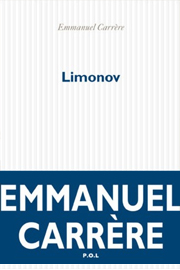Review: «Limonov» by Emmanuel Carrère
The American critic and biographer Leon Edel once told an interviewer that writing a biography is «like falling in love». Infatuation, explained Edel, is necessary, but so is the termination of the love affair, «if a useful biography is to emerge». Reading «Limonov», Emmanuel Carrère's biography of the controversial Russian writer and political dissident Eduard Limonov, it seems clear that Carrère started out enchanted with his subject.
What's rather less clear by the book's end is whether — his disavowals notwithstanding — he has actually managed to shake off his infatuation with Limonov, and perhaps more importantly whether this lively, engaging book can be called a biography at all.
An accomplished French author, Carrère is not new to biography — he's written about science fiction author Philip K. Dick and director Werner Herzog, among others — but his approach is unconventional. Carrère draws almost exclusively on Limonov's own writings to create a semi-fictional account of the man and his life. Interwoven throughout are bits of Carrère's own biography, and looming large in this narrative is the history of the former Soviet Union, particularly its dissolution beginning with perestroika and the ever-evolving drama that ensues. Of course, neither of these narrative strands overshadows the larger-than-life character at its center.
Limonov was born Eduard Savenko in the Soviet town of Dzerzhinsk in 1943, and in many ways his life choices can be seen as attempts to transcend his humble beginnings as the son of a lowly security guard. One of the earliest memories recounted in Carrère's biography is of Limonov overhearing a conversation between his parents — the family lived, not atypically, in a one-room flat, and the boy slept at the foot of his parents' bed — in which his father tells of his having transported prisoners who were to be shot. The description of one especially dangerous, but also «refined, stoical» prisoner — he was «calm and polite» and «spoke an elegant Russian», making «sure to do his exercises every day» — leaves a lasting impression on the young Limonov who, according to Carrère, «begins to dream that he'll be like him one day, that he'll go to prison too and impress not only lowlifes and underpaid cops like his father but women, thugs, real men». More troubling is the fact that, as Carrère puts it, «like everything he dreamed of doing as a child», Limonov did, in fact, get «the chance to do just that».
Limonov is driven by an insatiable desire for power, fame and admiration. But what's remarkable about him is the lengths to which he will go to reach his goals — whether working as a butler in New York City, firing a gun into Sarajevo alongside Bosnian Serb leader (and later accused war criminal) Radovan Karadžić, or founding the National Bolshevik Party in Russia. Even his two-year imprisonment in Russia seems simply par for the course with Limonov; as Carrère puts it: «(W)hen you've chosen the life of an adventurer, getting lost, being totally alone and washed up, is simply the price you have to pay».
It's not surprising that Limonov is a man with many enemies — whom he despises because of their successes. For as long as he has had poetic aspirations, he has been jealous of the likes of Joseph Brodsky and Alexander Solzhenitsyn, and he hardly bothered to contain his feelings of animosity toward these fellow Russian expat-literati whom he encountered during his sojourn in New York. A prominent surviving target of Limonov's hatred is Vladimir Putin, whom he similarly sees as usurping a place and position of power that should rightfully be his own.
Particularly disturbing is Limonov's attitude toward women, whom he sees — as he does everyone else around him, only more so — as foil for his own designs. Limonov's problem with women is exacerbated in the telling by an author who, referring to his subject's relationship with a minor, implies that the real crime is «how violently our era condemns an older man's fondness for young flesh».
Though he is not uncritical of Limonov, Carrère seems to be under his spell and the effect is a collapsing of the critical distance necessary between an author and his subject. Still, this is a fascinating book, worth reading perhaps less as biography than for the ways in which it plays with questions of genre and authorship.
«Chicago Tribune», 20 novembre 2014
 copyleft 2012–2020
copyleft 2012–2020